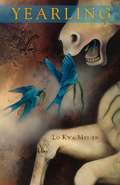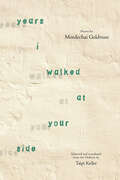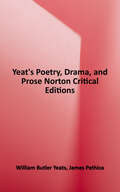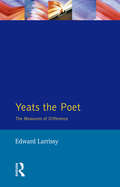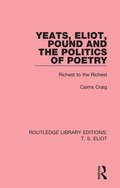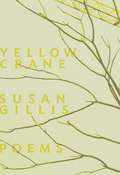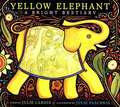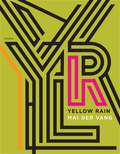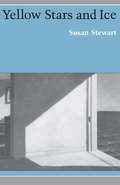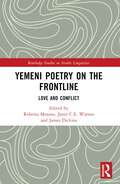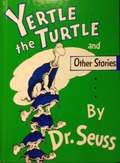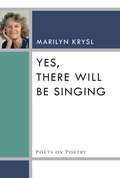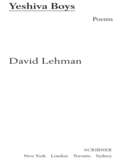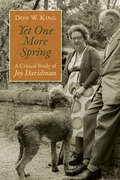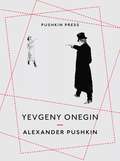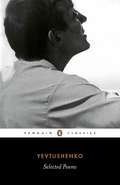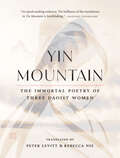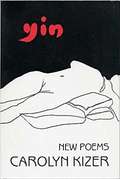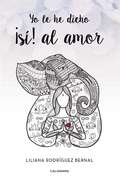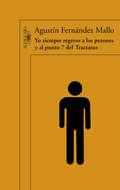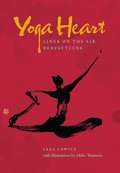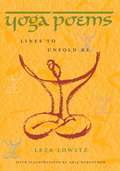- Table View
- List View
Yearling
by Lo Kwa Mei-en"Defiant and uncategorizable, Lo Kwa Mei-en's Yearling, with its teeming species, battles, and passions, read like an illuminated manuscript: mysterious, visceral, awe-full. Hers are some of the most enviable poems I have ever read, and herald Mei-en as the new standard bearer for innovative structure, terrifying acknowledgment, ecstatic statement, and, I daresay, beauty."--Kathy FaganLo Kwa Mei-en's Yearling explores adolescence through a deeply moving and poignantly raw lens. As the speaker ages, so too does the poetry, creating laments for the loss of friendship, the loss of species, and sometimes the loss of humanity itself. Harsh, forlorn and yet effervescent, Mei-en's lyricism perfectly captures the ethos of youth in an unsure world.From "Rara Avis Decoy":Wild diamond rocking on the floorof a predatory boat. Point & say sweet traitorto the wood & water for wanting to be madeof both. My name is I know not what I amas a country of mothers & fathers comes down.They call me sleeping beauty. I dream I amin flight, body unfolding, folding, a bulletwounding water again & again--the mysteriouslove of a father & mother a two-barreledgaze. The gun in my dream speaks my name& sees a beating vein. Takes aim--Lo Kwa Mei-en is from Singapore and Ohio. Her poems have appeared in Boston Review, Guernica, the Kenyon Review, West Branch, and other journals, and won the Crazyhorse Lynda Hull Memorial Poetry Prize and the Gulf Coast Poetry Prize.
Years I Walked at Your Side: Selected Poems (Excelsior Editions)
by Mordechai GeldmanFinalist for the 2018 National Jewish Book Award in Poetry presented by the Jewish Book Councilfrom "At Your Side"Years I walked at your sidelike our prophet Isaiahbarefoot naked and bareI will put on no coveruntil you see meuntil you recognize an otherone personat leastand so know yourself as wellMordechai Geldman came of age as a poet in the seventies, an auspicious and transformative time in the development of modern Hebrew literature, as poets and writers rejected the flowery, the hyperbolic, and the sentimental and opted instead for a more direct and intimate speech. While his early poems tended to rely on linguistic exploration, his vision soon turned inward, as he came to favor the simple, the true, the authentic. Geldman's poems are direct and accessible, touching on and revealing the divine and the sacred in the so-called mundane.
Yeat's Poetry, Drama, and Prose (Norton Critical Editions)
by William Butler Yeats James PethicaCriticism includes twenty-four interpretive essays by T. S. Eliot, Daniel Albright, Douglas Archibald, Harold Bloom, George Bornstein, Elizabeth Cullingford, Paul de Man, Richard Ellman, R. F. Foster, Stephen Gwynn, Seamus Heaney, Marjorie Howes, John Kelly, Declan Kiberd, Lucy McDiarmid, Michael North, Thomas Parkinson, Marjorie Perloff, James Pethica, Jahan Ramazani, Ronald Schuchard, Michael J. Sidnell, Anita Sokolsky, and Helen Vendler. A Chronology and Selected Bibliography are included.
Yeats The Poet: The Measures of Difference
by Edward LarrissyThis work addresses Yeats's "antinomies", seeing their origin and structure in his divided Anglo-Irish inheritance and examining the notion of measure. It then explores how this relates to freemasonry, Celticism and Orientalism and looks at the Blakean esoteric language of contrariety and outline which provided Yeats with the vocabulary of self-understanding.
Yeats and Modern Poetry
by Edna LongleyScholars and critics commonly align W. B. Yeats with Ezra Pound, T. S. Eliot and the modernist movement at large. This incisive study from renowned poetry critic Edna Longley argues that Yeats's presence and influence in modern poetry have been sorely misunderstood. Longley disputes the value of modernist critical paradigms and suggests alternative perspectives for interpreting Yeats - perspectives based on his own criticism, and on how Ireland shaped both his criticism and his poetry. Close readings of particular poems focus on structure, demonstrating how radically Yeats's approach to poetic form differs from that of Pound and Eliot. Longley discusses other twentieth-century poets in relation to Yeats's insistence on tradition, and offers valuable insights into the work of Edward Thomas, Wallace Stevens, Wilfred Owen, Hugh MacDiarmid, W. H. Auden, Louis MacNeice, Geoffrey Hill, Philip Larkin and Ted Hughes. Her postscript addresses key issues in contemporary poetry by taking a fresh look at Yeats's enduring legacy.
Yeats, Eliot, Pound and the Politics of Poetry: Richest to the Richest (Routledge Library Editions: T. S. Eliot #2)
by Cairns Prof. CraigIt has long been recognised that there is an apparently paradoxical relationship between the revolutionary poetic style developed by Yeats, Eliot and Pound in the period during and after the First World War, and the reactionary politics with which they were associated in the 1920s and 1930s. Concentrating on their writings in the period up to the 1930s, this study, first published in 1982, helps to resolve the paradox and also provides a much needed reappraisal of the factors influencing their poetic and political development. The work of these poets has usually been seen as deriving from the tradition of continental symbolist poetics. Yeats, Eliot, Pound and the Politics of Poetry will be of interest to students of literature.
Yellow Crane
by Susan GillisInviting, human, capacious poems that grapple with ideas while also lightly grieving our capacity for ruin.
Yellow Elephant
by Julie Larios Julie PaschkisHave you ever seen a yellow elephant, glowing in the jungle sun?Have you seen a green frog--splash!--turn blue?Or a red donkey throw a red-hot tantrum?In this bright bestiary, poet Julie Larios and painter Julie Paschkis cast a menagerie of animals in brilliantly unexpected hues--encouraging us to see the familiar in surprising new ways.
Yellow Rain: Poems
by Mai Der VangWINNER OF THE 2022 LENORE MARSHALL POETRY PRIZEFINALIST FOR THE 2022 PULITZER PRIZE IN POETRYFINALIST FOR THE 2022 PEN/VOELCKER AWARD FOR POETRY COLLECTIONFINALIST FOR THE 2021 LOS ANGELES TIMES BOOK PRIZE FOR POETRYA reinvestigation of chemical biological weapons dropped on the Hmong people in the fallout of the Vietnam WarIn this staggering work of documentary, poetry, and collage, Mai Der Vang reopens a wrongdoing that deserves a new reckoning. As the United States abandoned them at the end of the Vietnam War, many Hmong refugees recounted stories of a mysterious substance that fell from planes during their escape from Laos starting in the mid-1970s. This substance, known as “yellow rain,” caused severe illnesses and thousands of deaths. These reports prompted an investigation into allegations that a chemical biological weapon had been used against the Hmong in breach of international treaties. A Cold War scandal erupted, wrapped in partisan debate around chemical arms development versus control. And then, to the world’s astonishment, American scientists argued that yellow rain was the feces of honeybees defecating en masse—still held as the widely accepted explanation. The truth of what happened to the Hmong, to those who experienced and suffered yellow rain, has been ignored and discredited.Integrating archival research and declassified documents, Yellow Rain calls out the erasure of a history, the silencing of a people who at the time lacked the capacity and resources to defend and represent themselves. In poems that sing and lament, that contend and question, Vang restores a vital narrative in danger of being lost, and brilliantly explores what it means to have access to the truth and how marginalized groups are often forbidden that access.
Yellow Stars and Ice (Princeton Series of Contemporary Poets #157)
by Susan StewartFrom a sequence, "The Countries Surrounding the Garden of Eden":Gihon, that compasseth the whole land <P><P>At the first frost we found our sheep with strangled hearts, lying on their backs in the frozen clover, their eyes wide open as if they were surprised by a constellation of drought or endless winter. The wolves walked into the snow, like men who have given up living without love; cows would no longer let go of their calves, hiding them deep in the birch groves. Everywhere the roads gave off their wild animal cries, running toward the edge of what we had thought was the world. And the names of things as we knew them would no longer bring them to us.
Yemeni Poetry on the Frontline: Love and Conflict (Routledge Studies in Arabic Linguistics)
by James Dickins Roberta Morano Watson, Janet C.E.Yemeni Poetry on the Frontline investigates popular literary responses to conflict in the different regions of Yemen, comparing responses to, and expressions of, traditional conflict with those to the new externally fuelled conflict.In its engagement with diasporic Yemeni communities in the UK, the book explores how storytelling and poetry might heighten and enhance both political and public awareness of the situation in Yemen, and lead to wider cultural understanding of diasporic and refugee communities in the UK. The novelty lies in the focus on literary expressions of conflict and conflict resolution, and the bringing together of projects dealing with the diverse regions of Yemen.This book will primarily appeal to scholars in Yemeni poetry, Arabic literature, Arabic dialectology, and anthropological linguistics.
Yer Ezhupathu and Tirukkai Vazakkam of Kambar
by KambarIn Yer Ezhupathu: (Plough Seventy) Poet Kambar is all praising the profession of agriculture right from ploughing the land till harvesting in seventy verses. In Tirukkai Vazhakkam, he praises the qualities of benovalence of Velalar community in sixty verses.
Yertle the Turtle and Other Stories
by Dr SeussIncludes three humorous stories in verse: Yertle the Turtle, Gertrude McFuzz, and The Big Brag.
Yes, There Will Be Singing
by Marilyn KryslYes, There Will Be Singing brings together Marilyn Krysl's essays on the origins of language and poetry, poetic form, the poetry of witness, and poetry's collaboration with the healing arts. Beginning with pieces on her own origins as a poet, she branches into poetry's profound spiritual and political possibilities, drawing on rich examples from poets such as Anna Akhmatova, W.S. Merwin, and Vénus Khoury-Ghata. Krysl concludes with a selection of stories of her nursing and humanitarian work, powerfully connecting poetic expression with a generous and compassionate worldview.
Yeshiva Boys: Poems
by David LehmanDavid Lehman, a poet of wit, ingenuity, and formidable skill, draws upon his heritage as a grandson of Holocaust victims and offers a stirring autobiographical collection of poems that is his most ambitious work to date. It covers an expansive range of subjects -- from love, sex, and romance to repentance, humility, the meaning of democracy, Existentialism, modern European history, military intelligence, and the rituals associated with faith and prayer. The title poem, "Yeshiva Boys," is a work in twelve parts that blends the elements of espionage fiction, memory, history, and moral philosophy. It reflects David's experience as a student in an orthodox Yeshiva, and it, along with many other poems in the book, explores what it means to be a Jew in America, what is gained and lost in assimilating to secular culture, how to understand the peculiar destiny of the Jewish people, and how to reconcile the existence of God with the knowledge of evil. Beautiful, provocative, and accessible, this is David Lehman's most inspired collection.
Yet One More Spring: A Critical Study of Joy Davidman
by Don W. KingThe first comprehensive study of a gifted but largely overlooked American writer Joy Davidman (1915–1960) is probably best known today as the woman that C. S. Lewis married in the last decade of his life. But she was also an accomplished writer in her own right — an award winning poet and a prolific book, theater, and film reviewer during the late 1930s and early 1940s.Yet One More Spring is the first comprehensive critical study of Joy Davidman's poetry, nonfiction, and fiction. Don King studies her body of work — including both published and unpublished works — chronologically, tracing her development as a writer and revealing Davidman's literary influence on C. S. Lewis. King also shows how Davidman's work reflects her religious and intellectual journey from secular Judaism to atheism to Communism to Christianity. Drawing as it does on a cache of previously unknown manuscripts of Davidman's work, Yet One More Spring brings to light the work of a very gifted but largely overlooked American writer.
Yet One More Spring: A Critical Study of Joy Davidman
by Don W. KingThe first comprehensive study of a gifted but largely overlooked American writer Joy Davidman (1915–1960) is probably best known today as the woman that C. S. Lewis married in the last decade of his life. But she was also an accomplished writer in her own right — an award winning poet and a prolific book, theater, and film reviewer during the late 1930s and early 1940s.Yet One More Spring is the first comprehensive critical study of Joy Davidman's poetry, nonfiction, and fiction. Don King studies her body of work — including both published and unpublished works — chronologically, tracing her development as a writer and revealing Davidman's literary influence on C. S. Lewis. King also shows how Davidman's work reflects her religious and intellectual journey from secular Judaism to atheism to Communism to Christianity. Drawing as it does on a cache of previously unknown manuscripts of Davidman's work, Yet One More Spring brings to light the work of a very gifted but largely overlooked American writer.
Yevgeny Onegin
by Alexander Pushkin Anthony BriggsThe aristocratic Yevgeny Onegin has come into his inheritance, leaving the glamour of St Petersburg's social life behind to take up residence at his uncle's country estate. Master of the nonchalant bow, and proof of the fact that we shine despite our lack of education, the aristocratic Onegin is the very model of a social butterfly - a fickle dandy, liked by all for his wit and easy ways. When the shy and passionate Tatyana falls in love with him, Onegin condescendingly rejects her, and instead carelessly diverts himself by flirting with her sister, Olga - with terrible consequences.Yevgeny Onegin is one of the - if not THE - greatest works of all Russian literature, and certainly the foundational text and Pushkin the foundational writer who influence all those who came after (Tolstoy, Dostoevsky, Chekhov, etc). So it's no surprise that this verse novella has drawn so many translators. It's a challenge, too, since verse is always harder to translate than prose. (Vikram Seth, rather than translating Onegin again, updated it to the 1980s in San Franciso in his The Golden Gate). A.D.P. Briggs is arguably the greatest living scholar of Pushkin, certainly in the UK, and as such he's spent a lifetime thinking about how to translate Pushkin. Briggs is an experienced and accomplished translator, not only for Pushkin (Pushkin's The Queen of Spades) but for Penguin Classics (War and Peace, The Resurrection) and others. Briggs has not only been thinking about Pushkin for decades, he's been working on this translation for nearly as long. It's a landmark event in the history of Onegin translations and this edition is accompanied by a thoughtful introduction and translator's note.From the Trade Paperback edition.
Yevtushenko: Selected Poems
by Yevgeny YevtushenkoThis volume contains a selection of early works by Yevgeny Alexandrovich Yevtushenko who blazed a trail for a generation of Soviet poets with a confident poetic voice that moves effortlessly between social and personal themes. ‘Zima Junction’ vividly describes his idyllic childhood in Siberia and his impressions of home after a long absence in Moscow. Private moments are captured in ‘Waking’, on the joys of discovering the unexpected in a lover, and ‘Birthday’, on a mother’s concern for her son, while ‘Encounter’ depicts an unexpected meeting with Hemingway in Copenhagen. ‘The Companion’ and ‘Party Card’ show war from a child’s eye, whether playing while oblivious to German bombs falling nearby or discovering a fatally wounded soldier in the forest, while Yevtushenko’s famous poem, ‘Babiy Yar’, is an angry exposé of the Nazi massacre of the Jews of Kiev.
Yin Mountain: The Immortal Poetry of Three Daoist Women
by Peter Levitt Rebecca NieFreshly translated poems reveal the complexity, self-realization, and spiritual freedom of three classical Daoist women poets.Yin Mountain presents a fascinating window onto the lives of three Tang Dynasty Daoist women poets. Li Ye (c. 734–784), Xue Tao (c. 768–832), and Yu Xuanji (843–868) lived and wrote during the period when Chinese poetry reached its greatest height. Yet while the names of the male poets of this era, such as Tu Fu, Li Bo, and Wang Wei, are all easily recognized, the names of its accomplished women poets are hardly known at all. Through the lenses of mysticism, naturalism, and ordinary life, the five dozen poems collected here express these women&’s profound devotion to Daoist spiritual practice. Their interweaving of plain but poignant and revealing speech with a compelling and inventive use of imagery expresses their creative relationship to the myths, legends, and traditions of Daoist Goddess culture. Also woven throughout the rich tapestry of their writing are their sensuality and their hard-wrought, candid emotions about their personal loves and losses. Despite that these poets&’ extraordinary skills were recognized during their lifetimes, as women they struggled relentlessly for artistic, emotional, and financial independence befitting their talent. The poems exude the charged charisma of their refusal to hold back within a culture, much like our own, that was cosmopolitan yet still restrictive of women's freedom. Skillfully introduced and translated by acclaimed translators Peter Levitt and Rebecca Nie, these wonderful poems will resonate with the lives of spiritual practitioners today, especially women.
Yo le he dicho ¡sí! al amor
by Liliana Rodriguez Bernal¿Es posible sobrevivir a la locura intensa del amor? «Yo le he dicho ¡sí! al amor esculpe y ordena pensamientos, sentimientos y emociones. Su lectura, hecha pausadamente, en voz alta y con los ojos del alma nos adentra, con su ritmo y cadencia, en la danza de la imaginación poética o en los sueños de los enamorados que nos transportan a un mágico lugar, sumergiéndonos en ese mar idílico de pasiones, unas veces tranquilas y otras tormentosas, donde brotan sentimientos cual lágrimas, de felicidad o de tristeza, por aquello del amor o del desamor, de la ilusión o la melancolía, de la soledad o la compañía, de la muerte o la vida...»Miguel Bejarano Corchuelo
Yo siempre regreso a los pezones y al punto 7 del Tractatus
by Agustín Fernández MalloAgustín Fernández Mallo deconstruye, a través de su inconfundible y plástica prosa poética, la ruptura de una pareja. «Recluido en un hotel de una isla mediterránea, el hombre recuerda los avatares de aquel amor. Se despliega, así, un abanico de fotografías verbales, que se engarzan en las páginas como cuentas en el hilo de la memoria.»Eduardo Moga Un gin con limón. Una habitación de hotel. Una isla mediterránea. Un tipo al que su chica ha abandonado creyendo que una casa no agota todos los mapas. Y un monigote atornillado a la puerta del lavabo que no deja de hablar y que, en su largo monólogo existencial, aúna literatura, la belleza del caos que se extiende ante la ausencia infinita, con ciencia, la fría rigurosidad carnívora del número exacto, del azar entendido como obra de arte que se decapita a sí misma a cada instante. Agustín Fernández Mallo deconstruye, a través de su inconfundible y plástica prosa poética, la ruptura de una pareja, arrojando puñados de polaroids verbales ante el lector, asomándose al abismo del terrorífico, por simple, por vacío, mundo real. Un universo cuyos límites están definidos por el lenguaje, como dejó claro el filósofo Ludwig Wittgenstein, cuyo Tractatus homenajea, desde el título, este deliciosamente crudo texto: las palabras son armas que, al dispararse, dibujan la frontera entre lo que existe y lo que no existe porque simplemente no puede nombrarse. Brillante reflexión (físico) metalingüística sobre lo paradójico de la existencia.
Yoga Heart
by Leza Lowitz Akiko Tanimoto"Yoga Heart is a tiny treasure to hold and to behold. Even the typography and colors are food for contemplation...highly recommended for people who will not only read the lines for enjoyment, but also use them for contemplation and right action in life." -New York Journal of BooksThese sixty poems on the Buddha's six "perfections," or qualities for a meaningful life-generosity, kindness, patience, joy, stillness, wisdom-were written over years of yoga and meditation practice, inspired by Tibetan Heart Yoga, nature, Buddhism, Osho, Tantra, ancient Japanese and Chinese poetry, Rumi, Kabir, haiku, love, and life. They seek to capture a journey from the physical body to the subtle body to the light body, until the heart bursts open into the beautiful radiance of divine energy in the world.Leza Lowitz is an award-winning author and editor. She owns Sun and Moon Yoga Studio in Tokyo and has written for Yoga Journal and Shambhala Sun.All author proceeds from the sale of this book go to relief efforts for people and animals affected by the Great East Japan Earthquake of March 11, 2011
Yoga Poems
by Leza Lowitz Anja BorgstromThe sixty poems in this book are windows into the mind/body/spirit experiences that come about through yoga practice. Each poem is named for a posture or breath exercise and is inspired by the physical properties of the pose or some aspect of breathing that led the poet to deeper understanding. Listening to these poems read aloud, or contemplating them on one's own, will help yoga students understand their own struggles and inspire them on the way to personal transformation.
